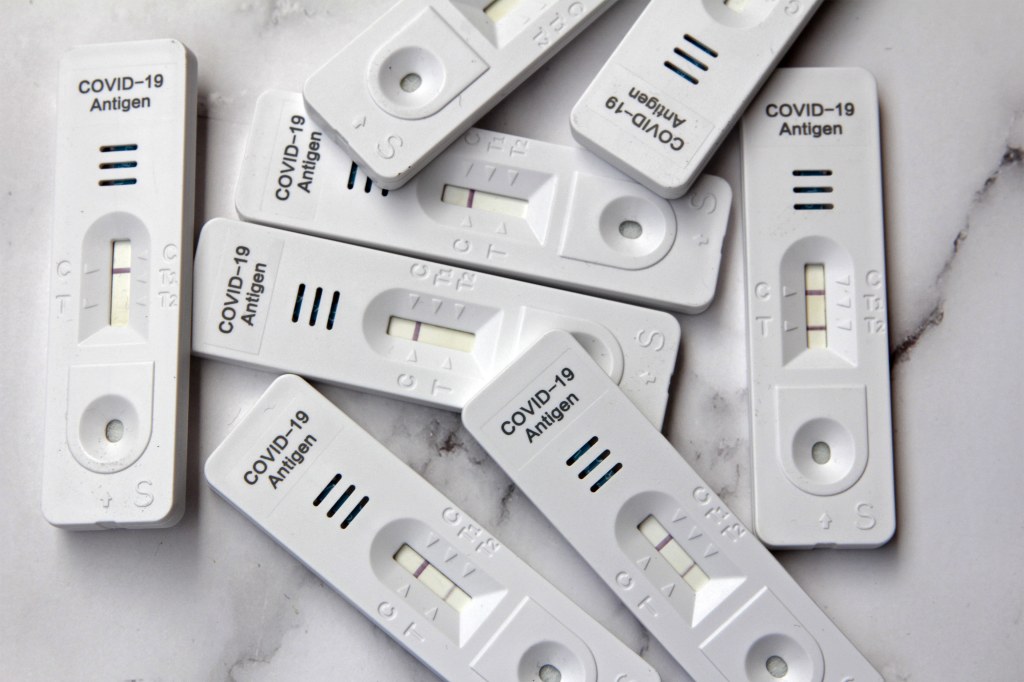—
There are more women physicians than ever, yet the gendered pay gap persists
by
Rachael Robertson
,
Enterprise & Investigative Writer, MedPage Today
March 20, 2024
Despite being a growing percentage of the physician workforce, women physicians continued to be paid less than their male colleagues, a strong body of evidence shows.
While the gender pay gap decreased by 2% from 2021 to 2022 — from 28% to 26% — the gap was still significant, according to online networking service Doximity’s 2023 physician compensation report.
Women doctors in 2022 earned nearly $110,000 less per year than men physicians, on average, after adjusting for specialty, location, and years of experience. Data from individual states have backed up this figure, too. For instance, in 2022, the Maryland State Medical Society conducted a survey and found that women doctors in Maryland are paid about $100,000 less annually than men.
In addition, the 2021 annual Faculty Salary Survey from the Association of American Medical Colleges (AAMC) found that women in different medical specialties were paid between $0.72 and $0.96 to their male colleague’s dollar.
“The pay gap has remained remarkably consistent despite studies that have drawn attention to it,” Vineet Arora, MD, MPP, of the University of Chicago Pritzker School of Medicine, told MedPage Today.
Arora said it’s also important to think of the gendered pay gap in terms of lifetime earnings, and thus generational wealth, not just annual pay. Her group previously reported in Health Affairs that female physicians make about $2 million less across a 40-year career.
Shikha Jain, MD, a hematology and oncology physician at the University of Illinois Cancer Center in Chicago, and founder of the nonprofit Women in Medicine, told MedPage Today that pay equity is a persistent problem, with multiple contributing factors, and disparities are even wider for women of color.
“Women physicians are often offered less starting pay than their male colleagues. So when you start off at a lower amount at your first job, the opportunity for you to negotiate at the same level as your colleagues is limited from day one,” Jain said, adding that less money goes toward women physician researchers, too.
Data suggest that medical specialty and factors such as hours worked, type of work, and location contribute to gendered pay gaps. For example, a report in Academic Medicine noted that women are more represented in lower paying specialties, like pediatrics, and far less represented in highly compensated specialties, like surgery.
Even within more competitive specialties, women earn less. A report in BMJ Open found that female ob/gyns and surgeons faced stark pay differences and made, on average, $75,000 less than their male colleagues per year — the differences coming down to supplemental income, from research or additional clinical care pay, rather than huge gaps in base pay.
But less pay does not equal less work; on the contrary, women tend to do more unpaid labor, such as working on committees. Jain pointed out that “women are more likely to be ‘voluntold’ to do work that is necessary for the institutions but is not going to be of benefit.”
Women, being more often the main caregivers to children or elderly relatives, also felt the brunt of pandemic-related cuts to promotions, bonuses, and other advancement opportunities most acutely, Arora and Jain said.
In addition, family building and pregnancy also affect pay disparities. A research letter in JAMA Network Open found that women physicians are more likely to reduce work hours to have time for family, especially early in their careers, which can contribute to a growing pay gap over time.
Women face pressure to “wait to have babies until they get to a certain part in their career,” Jain said, adding that having a baby at any time impacts career growth. She recalls a colleague who told her she didn’t suggest Jain for an opportunity because Jain had a young child — an example of how “people can assume that you’re not interested in responsibilities because you have children,” Jain said.
In 2020, a U.K. group suggested several strategies to mitigate pay disparities that were worsened by the COVID-19 pandemic. These included transparency and monitoring on gender pay gaps, making higher title jobs accessible to women, and policy and work culture changes.
Arora added that compensation committees are another avenue for addressing pay gaps.
“When we see the immense amount of work [women] are doing and the fact they’re not getting compensated and not getting any return on investment, whether it’s financial or otherwise, then why would women want to stay in medicine?” Jain asked.
“When leadership is representative of the communities served, patient outcomes are better” which contributes to the health of communities, Jain said. Keeping women in medicine “impacts the health of our patients, so everybody should care about it, not just the people who are being marginalized.”
![author['full_name']](https://clf1.medpagetoday.com/media/images/author/Rachael_Robertson_188.jpg)
Rachael Robertson is a writer on the MedPage Today enterprise and investigative team, also covering OB/GYN news. Her print, data, and audio stories have appeared in Everyday Health, Gizmodo, the Bronx Times, and multiple podcasts. Follow
Note: This article have been indexed to our site. We do not claim legitimacy, ownership or copyright of any of the content above. To see the article at original source Click Here













